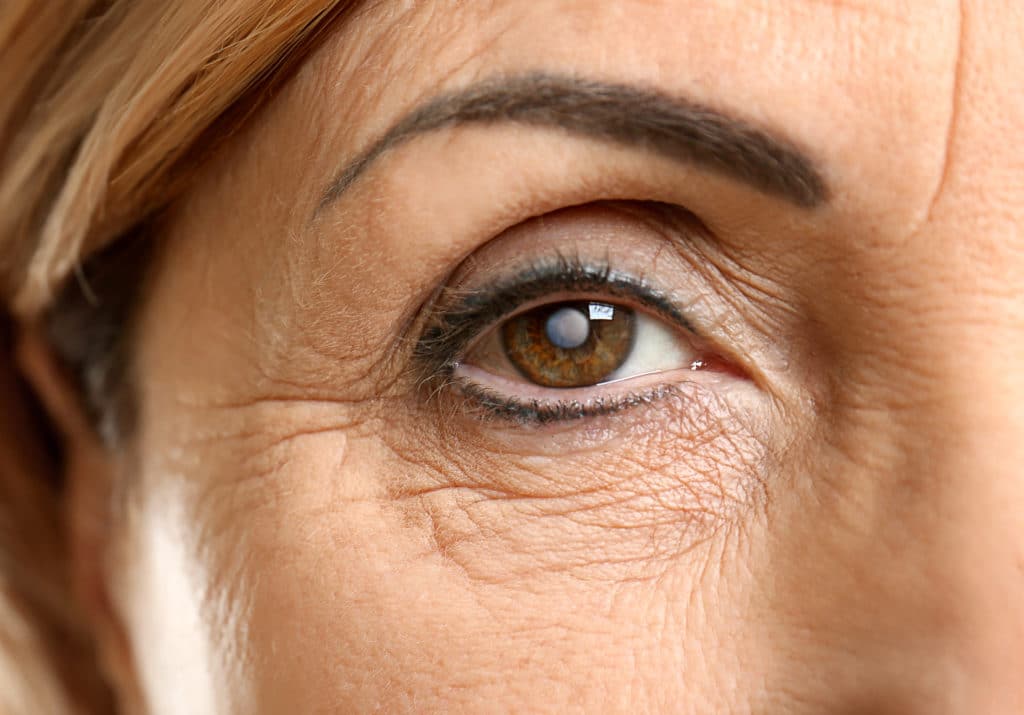
Jump to Section
What is Cataract Surgery?
At Boston Vision, we offer cataract surgery in order to help you see properly once again. And as an outpatient procedure, you’re able to go home the same day. Cataracts cause your natural lens to become cloudy, disrupting your vision. Having a cataract is like looking through a foggy or dusty windshield. Your perceptions of things can be blurry, hazy, or faded in color. The only way to get rid of cataracts is through surgical intervention. How long your cataract surgery takes depends on the type of surgery you have done. Your ophthalmologist at Boston Vision will help choose the best surgical option for you.
Cataract Symptoms
Cataracts are a common eye condition that occurs most often in people over the age of 50. Cataracts are the clouding of the natural eye lens. This makes it difficult to see. Cataract symptoms to look for are:
- Slow, progressive decrease in vision.
- Glare
- Blurred vision
- Yellowing of images
- Decrease in color intensity
- Frequent prescription changes
- Double vision
- Vision loss
Some types of cataracts affect distance vision more than close-up vision. Other types may affect close-up vision more. At Boston Vision, we suggest that patients get evaluated as soon as they start to notice a cataract, especially if it is starting to interfere with their daily activities.
Types of Cataract Surgery
Our team at Boston Vision strives to stay on top of the latest advancements in technology and surgical techniques in order to provide our patients with effective, quality care. Our team is always at the forefront to embrace revolutionary implants for cataract surgery once deemed safe. These include toric lenses to correct astigmatism and multifocal lenses to reduce dependency on glasses at a distance and near. The most advanced implant currently available is the light-adjustable lens (LAL, www.Rxsight.com ). Boston Vision is the first to offer this implant in MA.
The types of cataract surgery that we perform at Boston Vision are:
Phacoemulsification
With this technique, an ultrasonic oscillating probe is inserted into the eye. This probe breaks up the center of the lens. While this is happening, the fragments are suctioned from the eye. Most of the lens capsule is left behind, but a foldable intraocular lens implant will be placed inside to help focus light onto the retina. The incision used for this is very tiny and does not require any sutures to close it. There is a very short period of downtime, but vision returns quickly.
Femtosecond Laser-Assisted Cataract Surgery (FLACS)
With this technique, a precise laser is used to perform some steps of the surgery prior to entering the operating room. The laser will make corneal incisions for the surgery and to reduce astigmatism. The laser will also open the cataract (capsulotomy) and soften the lens, allowing the surgeon to use less ultrasound in the eye.
Posterior Capsulotomy
This is a laser procedure that is sometimes necessary after cataract surgery. During cataract surgery, part of the anterior capsule is removed. The remainder of the capsule holds the lens implant in place. The posterior capsule remains fully intact. But sometimes, the posterior capsule loses its clarity after cataract surgery. When this happens, a laser can be used to restore normal vision.

Dropless Cataract Surgery
After cataract surgery, most of our patients do not need drops. Your ophthalmologist may give you something to cover the eye in order to protect it. Recovery from cataract surgery is relatively quick and simple. Most patients notice an immediate improvement in their vision from the surgery and return to most activities of daily living the next day.
Related Pages on Cataract Surgery:
Intraocular Lens
Toric Lens Implants
Cataracts in Children
Schedule Your Consultation
If you are noticing signs or symptoms of cataracts, then speak with an eye doctor at Boston Vision. We can help you find the right treatment for you in order to restore your vision. To schedule your appointment, book an appointment online or give us a call at 617-430-6121
Cataract surgery is available at our Brookline, Milford, Medford, Wellesley, Burlington, Woburn, and Andover locations.







